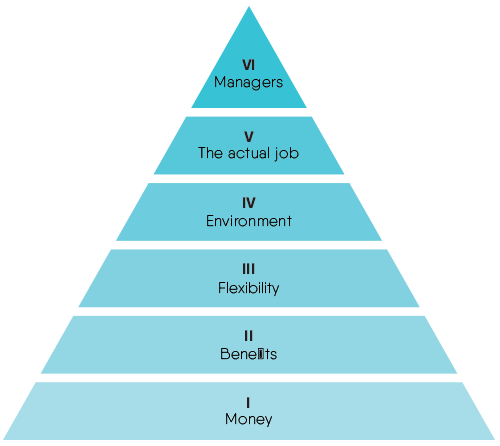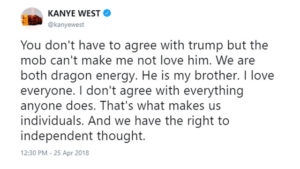At this point, we’ve been educated enough to know we all have biases. The reason for our biases is different for each of us. We’ve gotten to a point in our society where we judge each other’s biases on a scale of “this is a bias, but its not really a bad bias” to “you’re an awful person because of your bias!”
If you won’t hire someone based on the color of their skin, then well you’re an awful human being with a really awful bias.
If you won’t hire someone based on the fact they went to the University of Michigan, well, then, you’re just smart! 😉 But still a pretty stupid bias!
This continuum of biases game we play is somewhat comical.
Some new research has come out, though, on a bias we can all finally agree on! No matter what skin color you are, black, white, some combination in between, we agree on this. No matter what religion, what socio-economic background you come from, your religion, your political beliefs, whether or not you actually believe Star Wars or Star Trek is better, we all agree that Fat People are bad.
Um, what!?!
Yeah, Americans can’t stand obese people!
We don’t want to hire them, and when we do, we pay them less and give them the worse jobs.
All of which is fairly comical as well, since most Americans are overweight! 74.1% of Americans are overweight! You see the continuum thing again, right?!
“Oh, God, that dude is giant! Yuck! You know he won’t work! I’m just so happy I’m not ‘that’ fat!” Come down, Sparky! It’s not like you’re winning any Crossfit challenges, either!
It’s gotten so bad in America we hate fat people more than smokers! Secondhand smoke actually kills people. Mikey eating his eighth donut of the day is only killing himself!
Okay, I know you think all of this sounds insensitive. I’m not a skinny dude. I’m built like a fire hydrant, and that’s never good. It is, so I can prove a point. A bias is a bias. There shouldn’t be this continuum of what biases are ‘okay’ and what biases are ‘bad’. The point being if you find yourself or your hiring managers rating biases, you’ve got a problem.
We hate on obese people because we believe it’s a personal choice, not a disease or a condition, something they control. “Yeah, Mikey is just lazy and has no self-control!” The reality is, like drug addicts, food is no different for many, many people. You like cocaine, Mikey likes donuts, you’re both filling a hole.
There are some companies in super-low unemployment markets right now who are actually hiring candidates who test positive for opioids and then paying to put them through treatment and guaranteeing them a job upon completion. Do you think you would do something similar for a candidate that is obese? Hey, Mikey, we’ve got a program, we want to see you healthy before you start work, go through it and we’ll guarantee you a job.
What do you think?

 Level I – Money – cash!
Level I – Money – cash!
